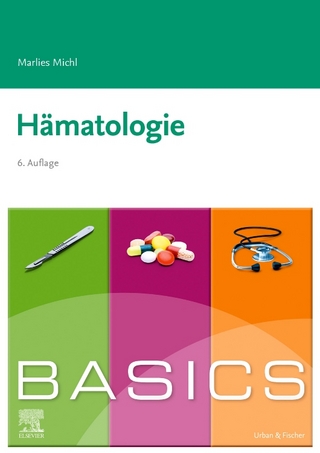
Mechanisms of Cell Toxicity
Seiten
1997
JAI Press Inc. (Verlag)
978-0-7623-0141-6 (ISBN)
JAI Press Inc. (Verlag)
978-0-7623-0141-6 (ISBN)
- Titel ist leider vergriffen;
keine Neuauflage - Artikel merken
Cell biology is a rapidly developing discipline which brings togther many of the branches of the biological sciences that were separate in the past. This volume brings together contributions which provide critical overviews and perspectives on recent developments and research advances in the field.
Cellular toxicology has entered a new era. No longer are we concerned only with necrotic cell death produced by severe, acute insult (often to multiple intracellular targets) leading to disruption of the cell membrane. New advances in molecular and cellular biology are allowing the dissection of mechanisms of cell death involving more subtle targets within the cell. Toxicology has been very important, not only in understanding the mechanisms, nature, and severity of toxicity and thereby helping in risk assessment, but toxicology has also played a very important role in helping to understand basic biological processes. Historically this has perhaps been most evident in the use of toxic agents to interfere with specific reactions in the body and hence help to dissect out the mechanisms of metabolic processes. For example, the use of chemical inhibitors was very important in understanding the process of oxidative phosphorylation, or the tricarboxylic acid cycle. More recent examples are seen herein where toxicology interfaces with, for example structural biology in the study of the cytoskeletal components and their interactions. Indirectly, an understanding of the mechanisms of endogenous protective systems also improves knowledge of basic cell biology. Toxic insult and manipulation of cell signalling and control mechanisms in cell growth and differentation also highlight how important the discipline of cell toxicity has been and will continue to be a major contributor to our understanding of basic issues in the biological and biomedical sciences. This book offers selected reviews of some of the principal molecular mechanisms of cell toxicity.
Cellular toxicology has entered a new era. No longer are we concerned only with necrotic cell death produced by severe, acute insult (often to multiple intracellular targets) leading to disruption of the cell membrane. New advances in molecular and cellular biology are allowing the dissection of mechanisms of cell death involving more subtle targets within the cell. Toxicology has been very important, not only in understanding the mechanisms, nature, and severity of toxicity and thereby helping in risk assessment, but toxicology has also played a very important role in helping to understand basic biological processes. Historically this has perhaps been most evident in the use of toxic agents to interfere with specific reactions in the body and hence help to dissect out the mechanisms of metabolic processes. For example, the use of chemical inhibitors was very important in understanding the process of oxidative phosphorylation, or the tricarboxylic acid cycle. More recent examples are seen herein where toxicology interfaces with, for example structural biology in the study of the cytoskeletal components and their interactions. Indirectly, an understanding of the mechanisms of endogenous protective systems also improves knowledge of basic cell biology. Toxic insult and manipulation of cell signalling and control mechanisms in cell growth and differentation also highlight how important the discipline of cell toxicity has been and will continue to be a major contributor to our understanding of basic issues in the biological and biomedical sciences. This book offers selected reviews of some of the principal molecular mechanisms of cell toxicity.
Contents. List of Contributors. Introduction to Cell Toxicity: a Perspective on Intracellular Targets (J.K. Chipman). The Role of Xenobiotic Metabolism in Cell Toxicity (S. Vamvakas). Reactive Oxygen Species and their Cytotoxic Mechanisms (M.D. Evans, H.R. Griffiths, and J. Lunec). Calcium, Glutathione, and the Role of Mitochondria in Cell Injury and Death (D.J. Reed). The Cytoskeleton as a Target in Cell Toxicity (A.J. Hargreaves). Cell Death Via Interactions of Agents with DNA (J.A. Holme, R. Wiger, J.K. Honslo, E.J. Soderlund, G. Brunborg, and E. Dybing). Mechanisms of Apoptoss (A.C. Bayly, R.A. Roberts, and C. Dive). Index.
| Erscheint lt. Verlag | 30.4.1997 |
|---|---|
| Reihe/Serie | Advances in Molecular & Cell Biology |
| Zusatzinfo | index |
| Verlagsort | Oxford |
| Sprache | englisch |
| Themenwelt | Medizinische Fachgebiete ► Innere Medizin ► Hämatologie |
| Naturwissenschaften ► Biologie ► Genetik / Molekularbiologie | |
| Naturwissenschaften ► Biologie ► Zellbiologie | |
| ISBN-10 | 0-7623-0141-4 / 0762301414 |
| ISBN-13 | 978-0-7623-0141-6 / 9780762301416 |
| Zustand | Neuware |
| Informationen gemäß Produktsicherheitsverordnung (GPSR) | |
| Haben Sie eine Frage zum Produkt? |
Mehr entdecken
aus dem Bereich
aus dem Bereich
Buch | Softcover (2024)
Urban & Fischer in Elsevier (Verlag)
54,00 €
Buch | Softcover (2023)
Deutscher Ärzteverlag
29,99 €


